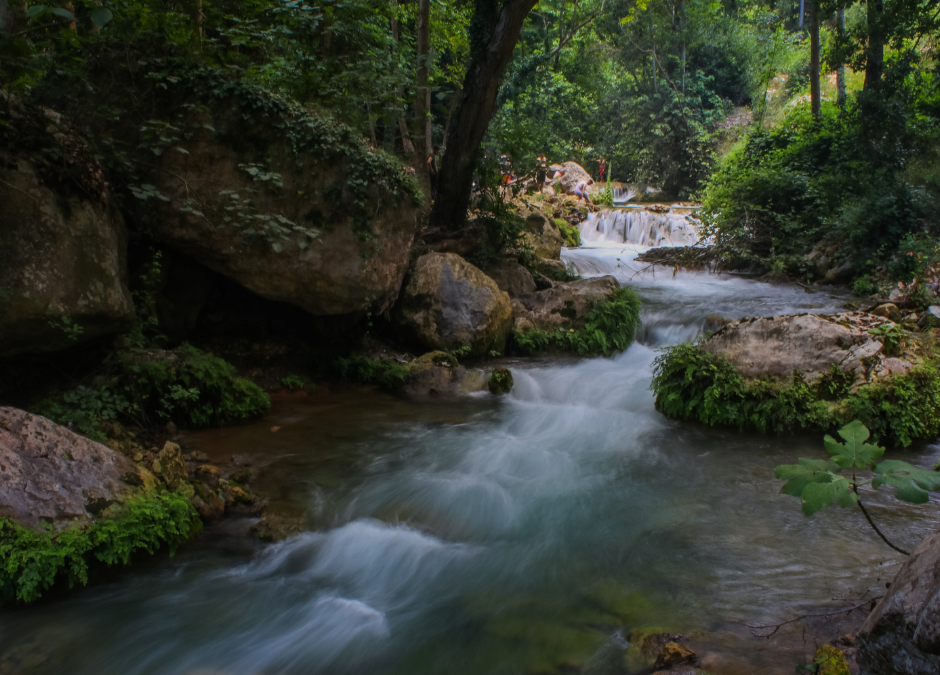What Is Tashlikh? What Is It’s History?
Rosh Hashanah, the Jewish New Year Festival, will be celebrated from Monday, September 22 through Wednesday, September 24 this year. It’s a time of introspection, penitence and prayer, with special foods prepared and shared, as well as the blowing of the shofar. One of the most important rituals that takes place during Rosh Hashanah is the Tashlikh. Let’s take a closer look at what Tashlikh is, its history, and how it’s commonly practiced.
What Is Tashlikh?
Alternatively referred to as either Tashlikh or Tashlich, from the Hebrew for “cast off,” this atonement ritual is commonly held on the first day of Rosh Hashanah. If the first day of Rosh Hashanah falls on Shabbat, the ritual will customarily be moved to the afternoon of the second day (though Tishlakh may be performed any time between Rosh Hashanah and Yom Kippur). The origin of the term and practice can be found in the book of Micah, Chapter 7 and verses 18-20: “You will cast all their sins into the depths of the sea.” The passage is recited at the ceremony.
What Is the History of Tashlikh?
According to most sources, the formal tradition of Tashlikh began around 1400 CE. Scholars say that primitive peoples had long believed that the most effective way to combat evil spirits living in waterways was to provide them with gifts. Some of the earliest examples included Babylonian Jews, who would float containers into the water to appease evil spirits.
The Historic Opposition to Tashlikh
Perhaps not surprisingly, there was initial resistance to the practice, for a couple of reasons:
- Non-Kabbalist Jews denounced the practice because they considered it too similar to the Kabbalist practice of casting off the quippoth (evil or impure spirits associated with Jewish mysticism). They feared that the ability to cleanse oneself of sins by simply tossing items in the water would encourage people to avoid true repentance or the making of amends.
- Some rabbis feared that people would elevate the tashlikh over the teshuvah (the process of repentance and return), thus minimizing the instances of true repentance and atonement.
What Does the Tashlikh Ritual Look Like?
The Tashlikh ritual is commonly held at a large body of naturally flowing water, such as a lake or river, but may also be at the ocean or a sea. During the ritual, the penitents typically recite Bible passages and symbolically throw their sins in the water. Most practitioners toss small bits of bread, though some rabbis do not permit that, believing that throwing bread into the water during Rosh Hashanah is not allowed under Jewish religious law, as only animals that are dependent on humans may be fed on Jewish holidays.
The Mainstream Acceptance of Tashlikh
In the 21st century, Tashlikh has been generally accepted by almost all mainstream Jewish traditions. In areas that may not be close to a natural body of water, participants have used cisterns, ponds and even a mikveh, or ritual bath. Some modern versions of Tashlikh also use more ecologically friendly alternatives to bread, such as bird seed or leaves.
Gutterman’s and Gutterman Warheit—Serving the Jewish Community for More Than Five Generations
At Gutterman’s and Gutterman Warheit, with funeral chapels in New York and Florida, we have provided comprehensive funeral and burial services to individuals and families in the Jewish faith for more than 130 years. We understand the unique customs within each Jewish tradition and can offer guidance on any issue, from the structure of the memorial services or the choice of a casket or monument to the details of sitting Shiva or the preparation of a Yahrzeit calendar. We will also work directly with the Chevra Kadisha to ensure compliance with Jewish law in the preparation of the body.
To learn how we can help, send us an email or call us at one of the numbers listed below.
Gutterman’s & Gutterman Warheit — Where Relationships Matter
Family Owned and Operated Since 1892
Rockville Centre: (516)764-9400 | Woodbury: (516)921-5757 | Brooklyn: (718)284-1500
Boca Raton, FL: (561)997-9900 | (800)992-9262

